Shot during protests, they now stare at a bleak future
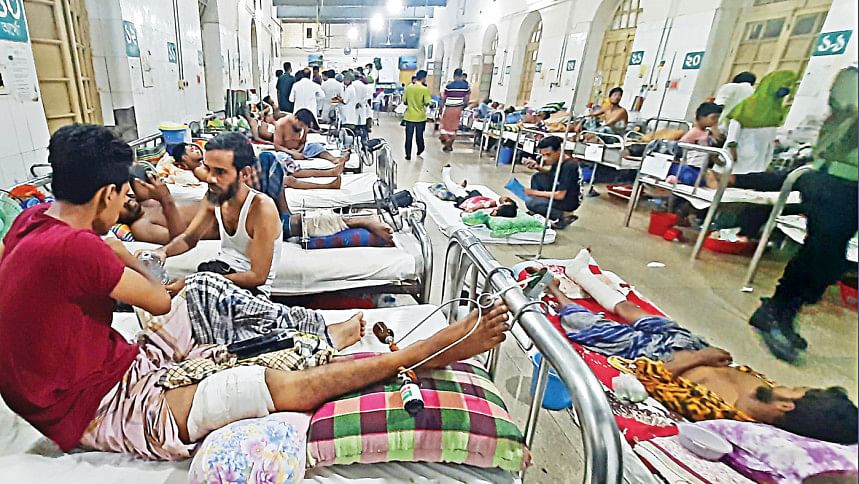
Asif Mahmud, a first-year electrical engineering student at Faridpur Polytechnic Institute, will probably never see the world through his own eyes again.
The 19-year-old's eyes were injured by shotgun pellets on July 18, during the anti-discrimination student movement in Narsingdi. On that day, his right eye was fully damaged, while the left one was in a critical condition.
Desperate to restore his eyesight, his family took him to Dhaka Medical College Hospital, National Institute of Opthalmology & Hospital (NIOH), and Bangladesh Eye Hospital.
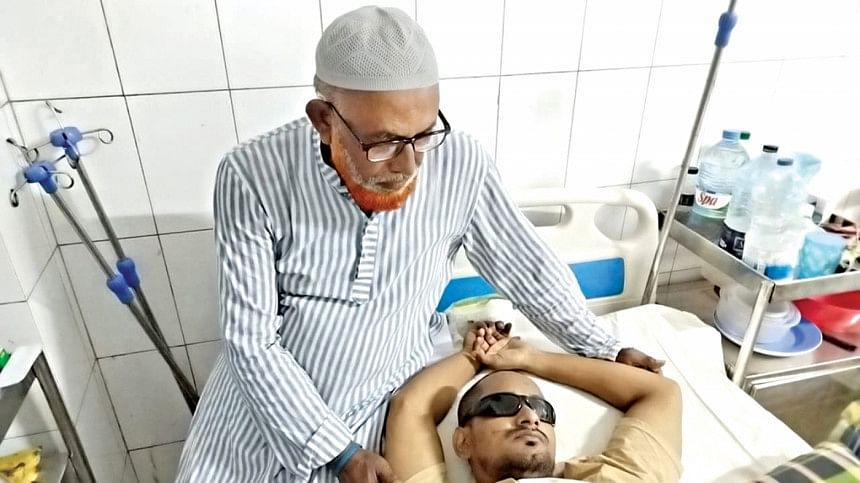
They spent around Tk 1.5 lakh, but in vain, with doctors still unable to tell whether Asif would ever be able to see again.
Just two days back, on Wednesday, he was released from Bangladesh Eye Hospital and returned home. Now, his family wants to take him to India for better treatment, but bearing the cost has become an immense challenge for them.
Like Asif, family members of numerous others who were injured during recent protests are concerned about bearing treatment costs.
The Daily Star visited three hospitals -- DMCH, NIOH, and National Institute of Traumatology and Orthopaedic Rehabilitation (Nitor) -- in the capital in the last three days and spoke to 27 such families.
While many are struggling to cover the costs of treatment, others are taking loans to bear expenses.
Although treatment and medication at these three hospitals are free, they had to spend a significant amount of money on ambulances and other miscellaneous expenses.
According to Directorate General of Health Services, over 500 patients are currently receiving treatment in government and private hospitals.
Almost all the admitted patients are from low-income families. Some are students, others are from blue-collar working backgrounds, and some are the sole breadwinners from their families.
The interim government on Saturday decided to provide free treatment to those who were injured during the recent protests.
However, while hospital authorities provide certain medicines for free, many other medicines have to be bought from outside, said several family members of the injured.
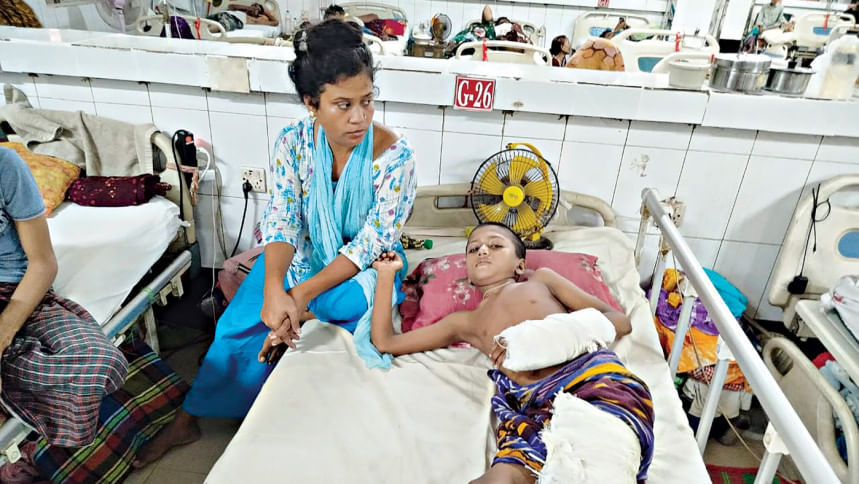
Doctors also said that many patients need long-term treatment, as they were injured severely.
For instance, take the case of auto-rickshaw driver Shajib Khan. The 28-year-old who is the sole breadwinner of a four-member family, was shot in the right arm on July 19 in Badda. He also suffered wounds from shotgun pellets. Currently, he is admitted to Nitor.
Shajib had to undergo three surgeries, which have left his family with a huge financial burden.
"I have had no income for the last month. We have already spent Tk 45,000 for my treatment, of which we borrowed Tk 30,000. The surgery cost almost nothing, and the hospital is providing medicine. But still, some medicines and injections have to be bought from outside," said Shajib.
"Doctors said I will require another surgery, and another month to recover," he added.
A total of 142 injured protesters, including 47 students, are currently undergoing treatment at Nitor.
Officials at Nitor said 13 people who were shot lost their legs. One person also lost an arm. A total of 642 people were treated at Nitor from July 12 to August 14. So far, five people have died at the hospital after arriving with gunshot injuries.
Mozaffar Hossain, joint director of Nitor, told The Daily Star, "We've formed a committee to identify what kind of support is needed for the injured. Those injured in the anti-discrimination movement, including students, will receive support."
He said the medicines purchased from outside will be adjusted if the bills are submitted to the hospital.
Another patient at the facility, Mohammad Akash, 19, lost his left leg, as doctors had to amputate it.
While talking to The Daily Star, his father Dulal Miah said he was taken to five hospitals after he suffered bullet wounds in Narayanganj.
"Akash worked at a sweet shop. We borrowed Tk 3.5 lakh to send him to Saudi Arabia for work, but now most of that money has already been spent on his treatment. My son has lost his job and his leg, and now the whole family has become financially crippled," said Dulal.
Meanwhile, NIOH data shows that 740 patients received treatment at the hospital from July 17 to July 26 and August 4 to August 16. Of them, 610 were admitted to the hospital.
A total of 495 operations were completed at the hospital. Moreover, 366 people lost their vision in one eye, while 17 lost vision from both eyes.
Currently, 55 people are undergoing treatment at NIOH.
Monirul Islam, a farmer from Magura, suffered pellet wounds in his eye and other parts of his body on August 4 while protesting. He lost his left eye following a surgery at NIOH.
"The surgery and most medicines cost me nothing. But some expensive medicines are not in stock and have to be bought from outside," he said.
"However, I had to bear ambulance costs. Also, my relatives who are looking after me have certain expenses, and the longer I stay, the more they will have to deal with those costs. Doctors said they don't know how long I have to stay," he said.
Selina Khatun, mother of 16-year-old Selim who was shot at Gazipur intersection on August 5, was seen crying at NIOH.
"There is no improvement in my son's eye condition. My son and I are both construction workers. For his treatment, I borrowed Tk 25,000. But still, he hasn't gotten well. Where will I get the money for better treatment?" asked Selina.
She requested the government to send her son abroad for better treatment.
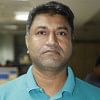
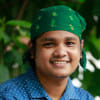
 For all latest news, follow The Daily Star's Google News channel.
For all latest news, follow The Daily Star's Google News channel. 



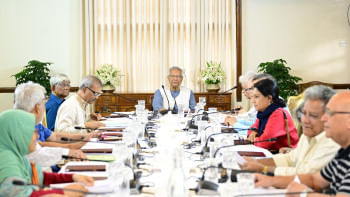
Comments